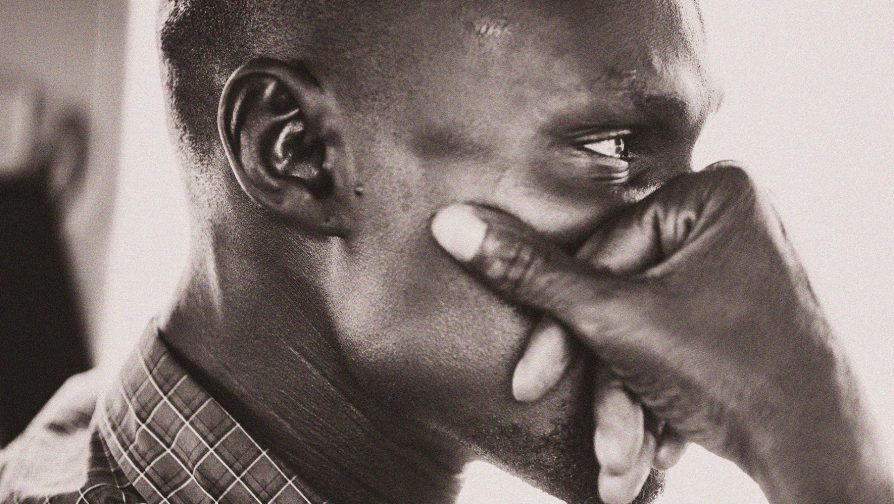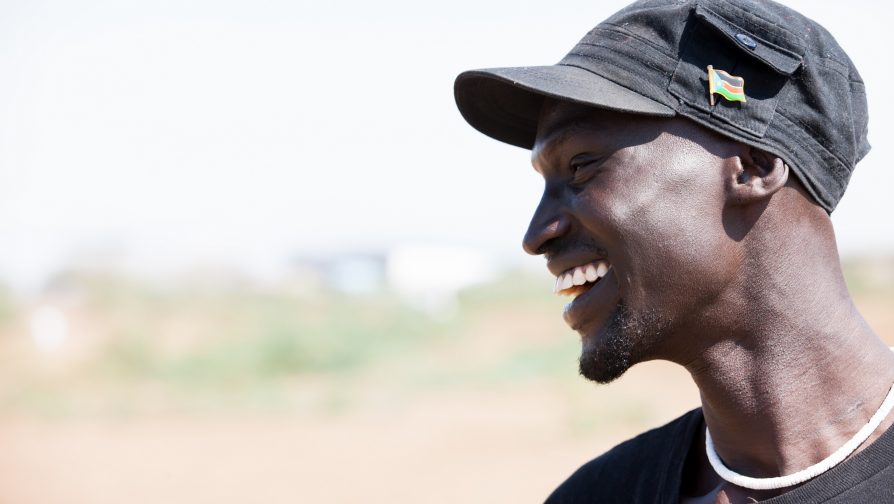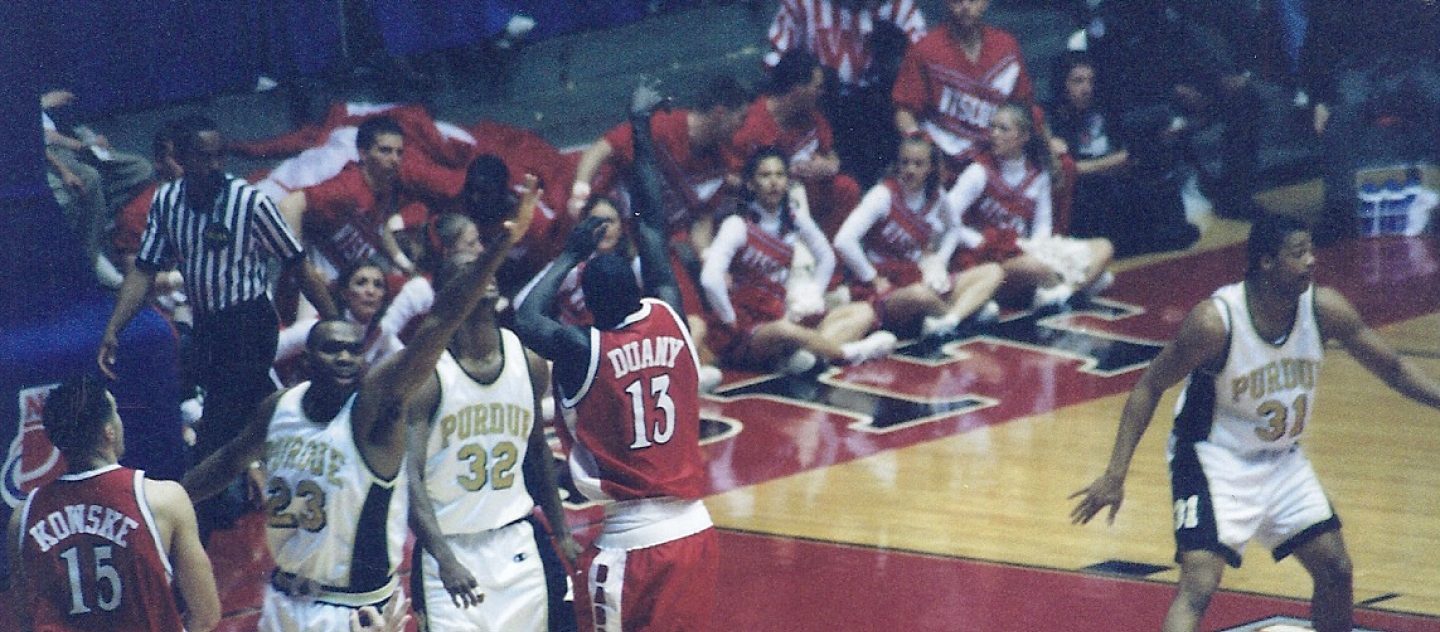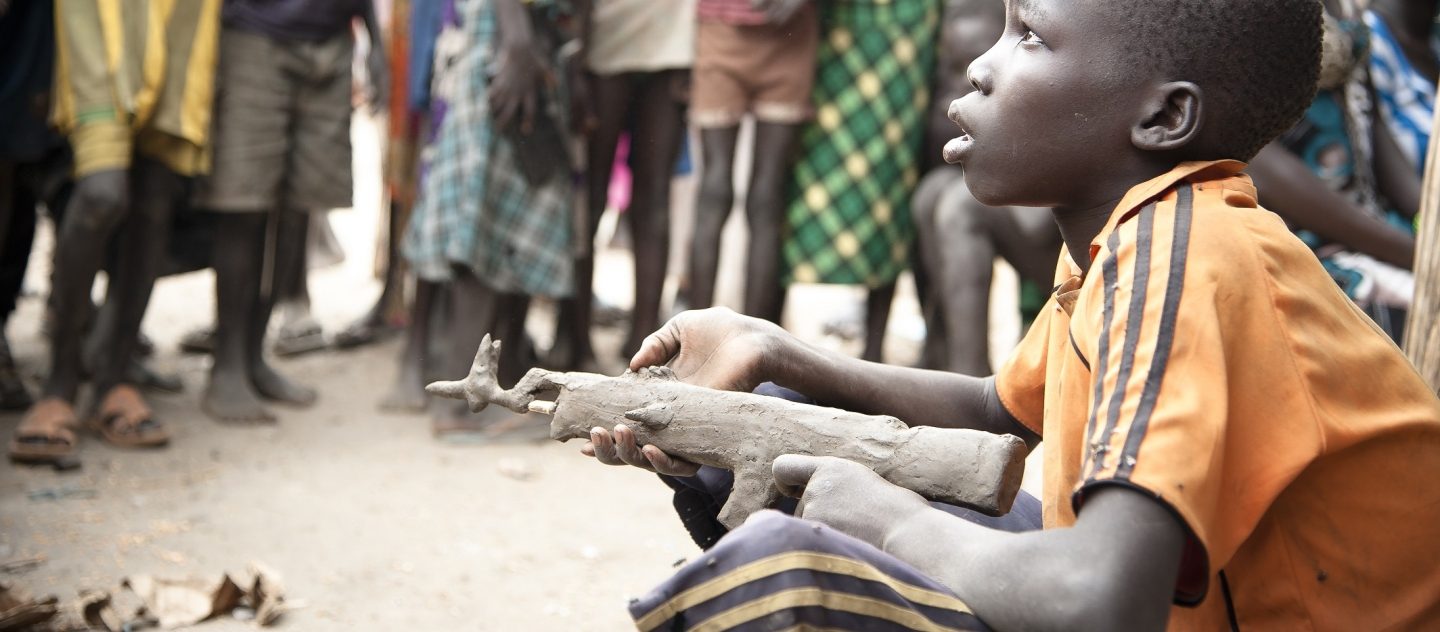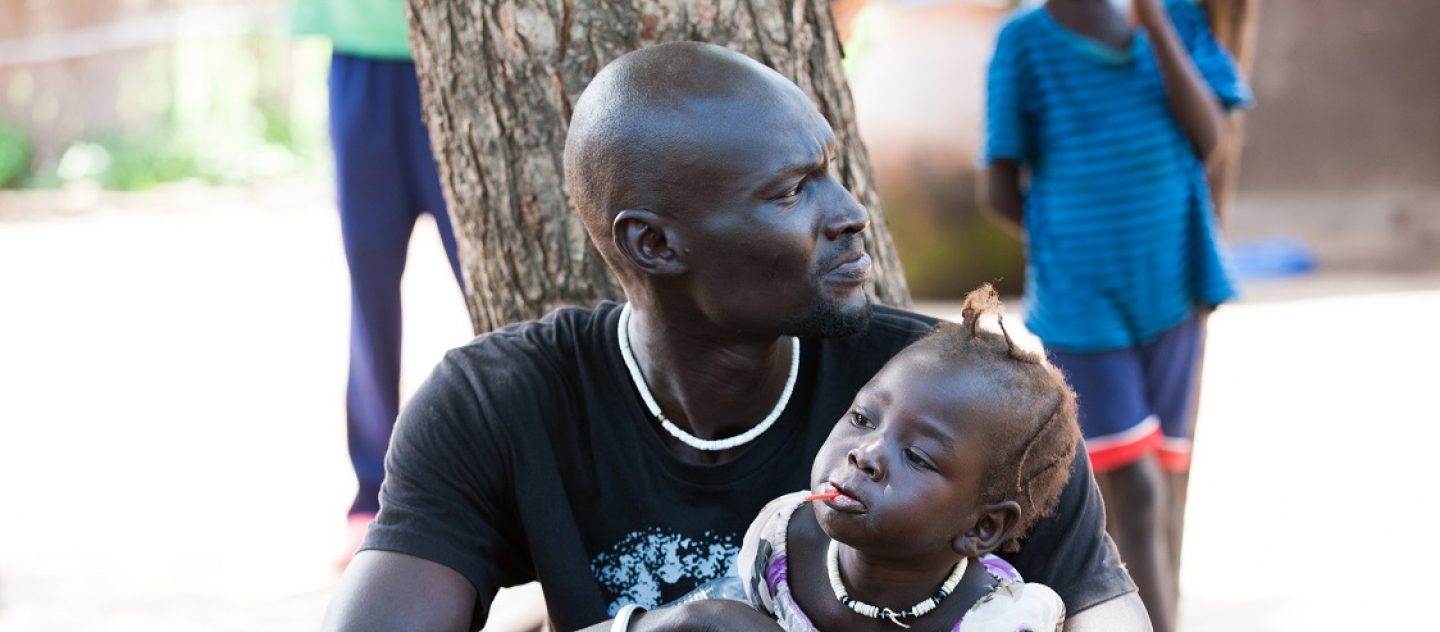GER DUANY: Time Takes us Away
When your homeland has been wracked by violent upheaval for decades, the prospect of peace is like the sweet smell of rain after a long drought.
This is my final blog post in the series about my life’s journey, intended to provide a glimpse into the events that fueled my desire to be a voice for the displaced..
With over 60 million people living through displacement in conditions that are far from ideal, the causes becoming more complex and the solutions more elusive, needs for compassion has never been greater.
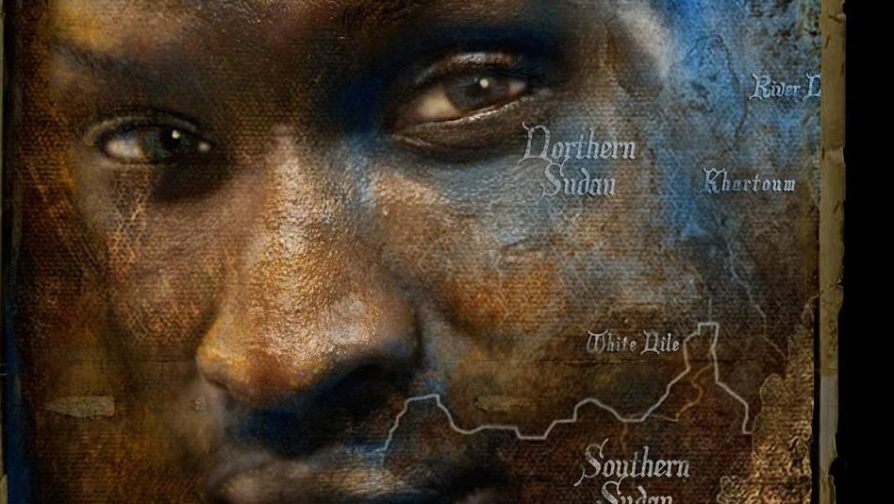
As a small boy, a refugee in Ethiopia, I used to draw the map of Sudan. I did it all the time with my free hand. I could draw that map with my eyes closed. Today’s narrative about my country is often about death and suffering, and the unimaginable tragedies playing out in people’s lives. There is also beauty in our country. When I think of South Sudan I see that beauty more than I see the mayhem and destruction. And yes, there is destruction. Still, I am optimistic that it will end and the beauty will prevail. We have the ability to overcome our problems. [Photo: Ger Duany]
So many years of waiting, hoping, praying and sometimes wondering why God had forsaken us.
When your homeland has been wracked by violent upheaval for decades, the prospect of peace is like the sweet smell of rain after a long drought.
I followed the peace process that in due course led to South Sudan’s independence avidly. It was unbelievable! So much had happened to us individually, and collectively as a nation. So many years of waiting, hoping, praying and sometimes wondering why God had forsaken us.
During those years, I had become aware of some of the nuances in the circumstances surrounding the conflict that I participated in directly as a child soldier and a political refugee. Reading The Conflict of Identities in Sudan by Francis M. Deng as a student at University of Bridgeport in Connecticut, I had my first glimpse at how disconnected we were despite being citizens of the same country.

My mum was with me at Kakuma refugee camp the day I was appointed UNHCR Goodwill Ambassador. This is the only important event in my life that she has ever attended. Today my mum is a refugee in Kenya because of the war in South Sudan. She has been a refugee for most of her adult life. She experienced three civil wars, which stole five of her children. Five survived. She feared I died during the 18 years that we were separated. [Photo: Emmanuel Jambo]
I started to see Africa differently, and to recognize the futility of war. Everyone loses.
Later, during the year of South Sudan’s independence, my friend, the Sudanese filmmaker Taghreed Elsanhouri came to New York to show Our Beloved Sudan, her film about the partition of the country.
After the screening a group of us participated in a discussion. One Sudanese kid said he had known of South Sudan as a place of savages and wild animals. I shared that in the south we distrusted the light-skinned people of the north. We knew only that they hated and looked down on us, and that they bombed our villages and killed innocent defenseless people. Because of them, our communities were torn apart; our people died of hunger and disease. We became refugees, scattered in foreign lands.
During that discussion, I saw that we had taken positions against each other without fully understanding. Although we had held the same nationality, we had been oblivious to the realities that shaped our negative perceptions of each other. That is how perceptions fuel hate.
Finding each other abroad we realized we were brothers and sisters. In New York, my Sudanese brothers saw that I was as smart as they were. It changed their way of thinking, and it changed mine. Through that experience I started to see Africa differently, and to recognize the futility of war. Everyone loses.
All the while, I longed for home and my family. Both would remain inaccessible until peace was restored.
I returned downhearted to the United States after my first visit to South Sudan in 2008. I was unable to travel to Akobo because our home state of Jonglei was still experiencing sectarian killing. In the place of the war with the north were inter- and intra-ethnic clashes of the kind that result in never-ending recourse to violence.
I remember that my stepmother, Nyachak Tuong, wept inconsolably when eventually I reunited with my family in Akobo on my second visit to South Sudan in 2010.
“…when Ger left he was just a small boy without physical strength. I could never think he could go, and survive, and comeback as a grown man.”
When my friend, Wanuri Kahiu, asked why, she responded, “I am crying because when Ger left he was just a small boy without physical strength. I could never think he could go, and survive, and comeback as a grown man.”
She was the mother who saw me walk away for the last time after my little sister drowned. Eighteen years had gone by. She was the first to see me when I came back. She is no longer with us.
That same bittersweet scenario played out in thousands of homes across South Sudan in the months and years that followed the historic signing of the Comprehensive Peace Agreement. Our reunions were emotionally charged; we rejoiced while simultaneously mourning the loved ones who disappeared through war, hunger and disease. Rare must be the family that did not experience such sorrow.
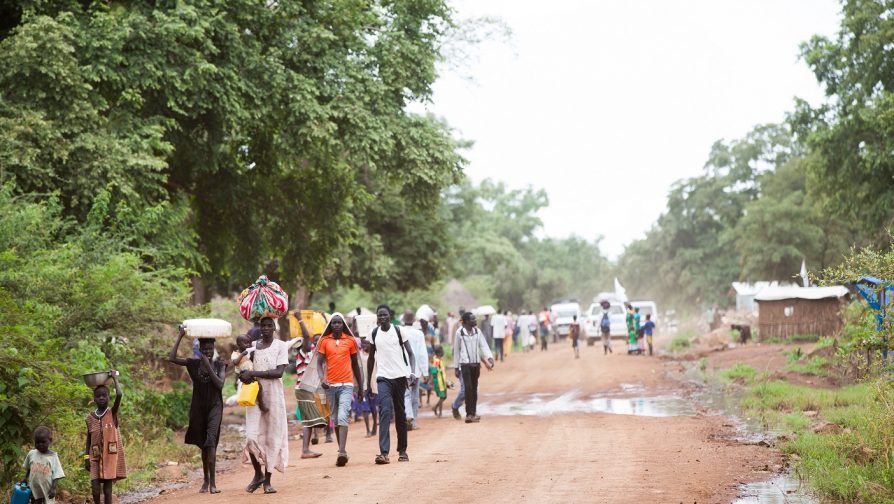
In 2014, I visited refugee camps in Gambella in Ethiopia in search of members of my family who had fled home. I saw columns of people who had just crossed the border and heard first-hand accounts of the terrors they had endured while fleeing, not unlike what I went through as a child. [Photo: Emmanuel Jambo]
As meaningful as reuniting with my family was the opportunity to vote in the referendum in January 2011 and to celebrate independence in July the same year.
I had dreamed of a homeland where children would grow up in safety and without fear.
But the euphoria that swept across our resource-rich country was short-lived. In less than three years, parts of the country would descend into the violent bloody chaos of my childhood punctuated by angry and sometimes hateful rhetoric, with accusation and counter-accusation overshadowing the torment and distress that were unleashed by the carnage.
The ravages of this war on our young country include suffering masses and the spilled blood of people whose numbers we may never know—in short, an atmosphere that runs counter to our aspiration to build a nation. Over 2.5 million South Sudanese—almost a quarter of the population—are back in the ranks of the world’s forcibly displaced.
I had dreamed of a homeland where children would grow up in safety, never knowing the ominous sounds of gunfire and of screaming mothers and children, never experiencing the terror of scattering in different directions.
That young generation—whose lives should have been colored by optimism and aspirations to prosper in a new nation—would instead be exposed to the kind of indescribable violence that shapes a twisted understanding of what one needs to survive. That is the reality in places where war is a way of life.
All that war-affected people—the survivors of carnage—have is hope.
All that war-affected people—the survivors of carnage—have is hope. Hope sustained us during seven decades of civil war, when we had lost everything. Hope flowed from the gestures of countries, people and organizations that assisted us in our greatest time of need, fugitives from raging wars. Hope grew in the classrooms and the playgrounds where we learned new skills, which in turn gave us new perspectives.
I am hopeful that peace will return to South Sudan, and that we will reap the positive dividends of the independence we voted for. A time will come when we the people will realize that war should never be an option; that in war there are only losers.

